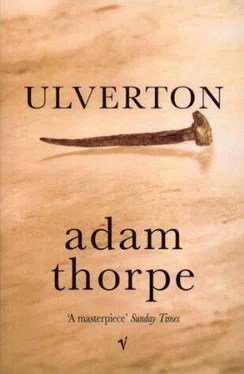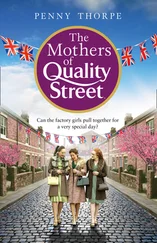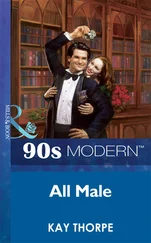I have asked how the Norcoat boy is and he mends, thank God. I hope he is slow at his Latin that you might remain longer with him, as long as my life.
I am,
yr deepest loving,
A.C.
April 12th, 1743.
My sweet W.,–
I am at my bureau that you admired so, inlaid with the ivory herons you told were your soul’s five desires, and touch your letter with my cheek as I write this. Its perfume is yours — how long in your pocket?
My head aches to read of your delay in returning. The boy is mended. Can you not be contracted for his Latin on the instant? I cannot think the scarlet tires the brain so that one must remain without schooling for a month after. I have your ribband in my hair. I say to Nurse that ’tis from my childhood. It is indeed true that as an infant I and my sister crept up to the top of the tower at Stagley, and forced the window ope, and let our ribbands fall to the lawn, tiny red things — mischief was ever in our nature. I have kept it since. It binds the hair of my dear Phoebe, you remember her — who smiles always shyly from my mantelshelf, tho’ she have one eye all cracks, & her dress be torn — my anger once — I am capable of anger. Dear Stagley! Yours plucked from your letter smells, I fancy, of your powder. When you come we must loosen our ribbands and let fall our hair, and play the savages.
Each morning I sit at the window — and lift it — and peep till I am blinded, for the light in here otherwise — only of candles — is so dim even by day I grow suited to it, and the sun rising above the rim of our estate (it is all furze and sheep-bells there) quite takes my sight from me. The smells of the garden soothe me, and blow the fustiness away for a period. This morning was all dewy, and they have cut the grass and rolled it, and the perfume was exemplary. You worry that my cold will worsen by the window, but it has not done yet. Yesterday a fox (I saw it clear) ran along the wood-edge for a good minute. I felt tenderness and esteem for its cunning.
I dream of raspberries and mutton. Also of you: those are bold dreams indeed! I cannot help my dreams. Our Chaplain came in this afternoon, to talk of my being churched at the month’s end, and of Charles’s baptism: he has a scratchy, fussy manner, and smells of cupboards. I could not help but think, as he went on, of what perdurable state he would consign me to did he but know the half! I do not like him — he was my father-in-law’s man — he looks at you over the top of his spectacles, but at one’s forelocks, never at the eyes. How few of the family of this great house do I feel anything for but a quiet despising — doors are ever opening and shutting, I hear them, but I do not care a fig for those who turn the handles. This whole house is rooms of India paper and wooden-ness and fuss.
Our baby does well. I feel such affection for the creature it cannot but be yours, tho’ it screams. He is fat now, like a cushion. The wet-nurse has such plump breasts I cannot fear that he lacks but rather has excess. When I held him yesterday he clasped my breast through the silk within his tiny lips — it was quite paining. I don’t think my breasts, being sharp, will ever be likely to support such mettle, if I were to choose to feed, which Lady Osborn tells me is the talk of the most fashionable at present. One is so in the rear here — of the mode. My Lord would not support any change in my dugs, so that is that.
Pray write soonest –
I am,
ever loving yrs,
A.C.
April 31st ’43.
Dearest William, –
Tore your letter open at the harpsichord — I told you ’twas to be delivered — they chipped a leg upon the stairs but ’tis tuned — I press it without consolation, the sound muffled in this swaddling tightness, but I play to chase Time faster before me. Wall entered with a bundle and it was but a breath before the rest were scattered upon the keys when I espied your hand: your curls and extravagances.
They are blotched by my tears — religiously spilt. You were amiss to pause in penning a reply and more amiss, double amiss, to write so curt. Do you not know how thin I have become? I look in the glass and see how tiresome I am, poor pale thing, to vex you with my sentiments and my passions. ’Tis the pier-glass with the cupids. Alas, one has a wing chipped. Is that hurt yours or mine? I cannot bear to see it. I will have it took down to the breakfast room, where it will serve my husband’s vanity. He is always at his neckerchiefs.
Why can you not come earlier? You must be burning for me but I daresay London does not lack a dousing. Lady Mortlake has cut a pretty figure of fun in the papers. A monstrous fortune she is — but she has scattered her favours as monstrously. They say there is not a dawn has passed this last year she has not combed her hair of a fresh entanglement. We have the Gazetteer brought here by chaise — I do not rust overmuch from lack of scandal.
My candle gutters now.
There — it is out. They let me only three — it is to rest me — I live and breathe in a kind of wavering gloominess that throws awful spectres upon this brown paper — it is the ugliest — his father’s taste was all for buff — ’tis like living in a jug.
Alas! this will not move you, I know it. You don’t in the least care for me. The female sex are all cloth to be cut anywise. My dress for the Christening was thought for you to gaze on — you are invited with the Squire — nothing more natural than his boy’s tutor should be invited next him. White sattin — with about the bosom: hibiscus and China oranges in yellow chenille — and rough sheaves of corn between — & twining stuff in gold threaded along the arms — that are puffed so light the whole may impart a pleasing effect of breeze and motion, that you say you favour in nature, when the trees are not stiff and artificial but fanned by gales. It is all done for below £100. I will be Diana, but not chaste.
I shall make you laugh — that will bring you. You laugh in the throatiest manner. How I stifled it that night upon yon bed! When you are returned and I am out we shall seek some mossy glade — and under the moon languish with our sickness. But laugh at this: I have had the Chaplain sent away to the London house for a month. There is no Chapel there — he will be bored as a mouse without a pantry. ’Tis I did it: he came in last week with his fuss in his fingertips and his greasy collar grating upon his bony neck and sermoned me ’till I near wept. When he had departed I ventured to say to Miss Fieldhouse (who was ever present, dull crow) that the Chaplain’s cheek was high-flushed — and his voice had a tubercule clatter to it — and I was fearful. I said this in the silliest manner, as one lightly throws a crust to a beggar at the gate, without consequence or thought, but she devoured it as the beggar and on the instant was gone to see. She reported back forthwith that she had come upon him in the Chapel clearing his throat — but I know he has always had this habit, it is as my husband’s blowing air through the nose, a sign of nervous tendency — and she informed Wall, who did the right things — has had the man sent packing, for a while. A new Chaplain is ordered: some mouldy curate, I suppose, out of some dusty shelf.
Did you make merry noises at that? I fear not. I am deep out of spirits with melancholia and my cold. My son does hardly cheer me: he screeches like a big door, tho’ he is ever tiny and round. Talking on screeches, there was a concert party held in the Dining Room, three nights past — & held to be very agreeable to all — most my husband’s gaming friends. I heard it in snatches through my door. The viols played my heart.
My sister at Stagley has had sent me a curious present: a black. He was part of my poor Aunt Eliza’s affairs, that being a sorry clutch of old fashion jewels — horses — parcels of yellow gloves — fire-forks — a Hudson that caught her to the like — a mothy Felletin — six chairs that were more scuff than velvet: this the whole left us. My sister did not know I am still confined. He is named Leeward after his natural abode tho’ I have not heard of it. He is about eleven. I thought Leeward the windless side of ship — that is what I recall my brother told me, the one that is in Barbados and always at ropes. I would not wish to go on the sea. I have not seen the boy but Wall tells he is eager tho’ she is no lover of blacks. I have to change his collar, it has Aunt Eliza’s name inscribed. My husband thinks him to have evil tendencies — he saw three blacks on the gibbet at Crowthorne from the carriage, the coachman told him they had robbed the inn there and sent the lady into a vapour from which she is not recovered. But I will be rid of him the moment the man in him cracks his voice.
Читать дальше










